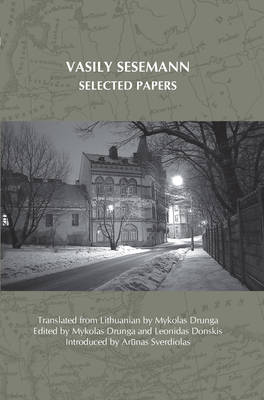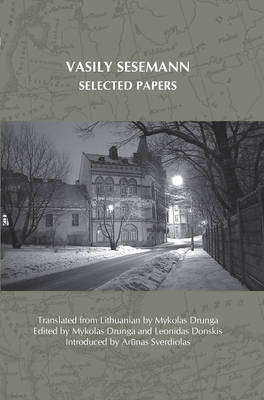
- Afhalen na 1 uur in een winkel met voorraad
- Gratis thuislevering in België vanaf € 30
- Ruim aanbod met 7 miljoen producten
- Afhalen na 1 uur in een winkel met voorraad
- Gratis thuislevering in België vanaf € 30
- Ruim aanbod met 7 miljoen producten
Zoeken
€ 60,95
+ 60 punten
Omschrijving
The Baltic philosopher Vasily Sesemann (1884-1963), rooted in the Classics and influenced but not dominated by Kant, Herder, Bergson, Husserl, and Lossky, was a first-rate scholar in the fields of aesthetics, epistemology, logic, and history of philosophy. But he is still relatively unknown internationally because he wrote mostly in Lithuanian and some of his many works are only now being translated into English. This successor volume to his Aesthetics collects eight noteworthy essays, ranging from the scholarly to the popular, on aesthetics, aesthetic education, national culture, and theory of knowledge. They reveal a sympathetic and responsive mind equally at home in Ancient Greek and modern French, German, and Russian philosophy; and capable both of untendentiously expounding their dominant ideas and fruitfully anticipating newer developments even as the latter began to take shape in early-to-mid-20th-century Western European philosophy. Hallmarks of Sesemann's thought are the Heraclitean preference for becoming (dynamism, change) over being (stasis, timelessness) and the idea that any culture, in order to survive and grow, must be intellectually deep and open to foreign influences. This insight has crucial relevance to the debates about multiculturalism today.
Specificaties
Betrokkenen
- Auteur(s):
- Uitgeverij:
Inhoud
- Aantal bladzijden:
- 124
- Taal:
- Engels
- Reeks:
- Reeksnummer:
- nr. 21
Eigenschappen
- Productcode (EAN):
- 9789042028258
- Verschijningsdatum:
- 1/01/2010
- Uitvoering:
- Paperback
- Formaat:
- Trade paperback (VS)
- Afmetingen:
- 155 mm x 234 mm
- Gewicht:
- 185 g

Alleen bij Standaard Boekhandel
+ 60 punten op je klantenkaart van Standaard Boekhandel
Beoordelingen
We publiceren alleen reviews die voldoen aan de voorwaarden voor reviews. Bekijk onze voorwaarden voor reviews.








